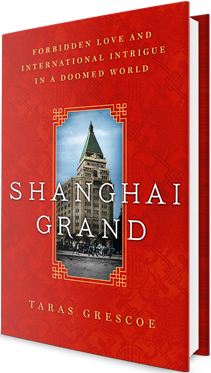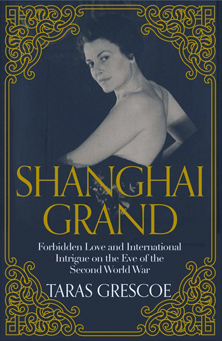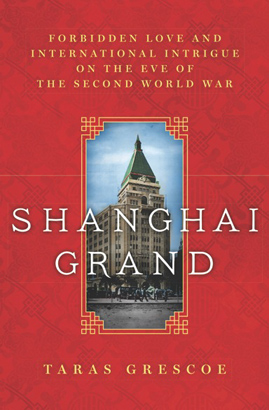Home
March 18, 2020 2024-07-29 11:38Home
Our Urban Future Starts with Today's Sustainable Mobility
The future is urban: the population of the world's cities now grows by a million people a week—which means a metropolis the size of New York is added to the global urban population every two months. How can we ensure that the cities we're building will make us happy, healthy, and connected?
For award-winning author Taras Grescoe, the answer is clear. In the twenty-first century, the most successful cities will be built around subways and Skytrains, commuter rail and tramways, light rail and bus rapid transit. Walkable neighborhoods, well-designed public space, and superior bicycle infrastructure are a crucial part of the mix. But the key to making our cities sustainable, accessible, and equitable lies in planning for great public transit.




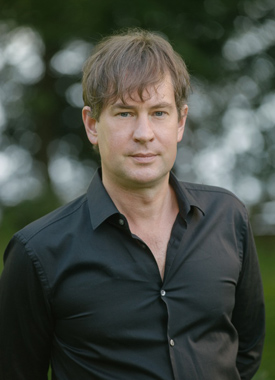
In his internationally acclaimed book Straphanger (Henry Holt, HarperCollins), Grescoe visited fourteen cities around the world, from Bogotá to Tokyo, to look at which places are getting the sustainable mobility formula right. He is also a leading voice on urbanism, whose writing on cities has appeared on the op-ed page of the New York Times, The Guardian, Monocle, and The Atlantic’s CityLab. A familiar presence on CBC radio, television, and NPR, he has been named one of the top influencers on the theme of urban transportation on Twitter.
Grescoe’s popular presentation on the best (and worst) in transit and mobility has seen him speaking to audiences on three continents. In dozens of keynotes, from Shanghai to Portland by way of London and Halifax, he has delivered a nuanced message about the future of urbanism, the perils of planning cities around freeways and cars, and such offbeat mobility solutions as the outdoor escalators of South America and the mini-metros of Italy.
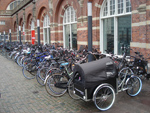


The Bookshelf

Taras's first book was Sacré Blues, a portrait of contemporary Quebec that won Canada's Edna Staebler Award for Non-Fiction, two Quebec Writers' Federation Awards, a National Magazine Award (for an excerpted chapter), and was short-listed for the Writers' Trust Award. It was published in 2000 by Macfarlane, Walter & Ross, and became a Canadian bestseller. Writing Sacré Blues helped Taras fall in love with Quebec, and explained the origins of poutine to an eternally grateful country. The publisher let it go out of print, but used copies sometimes be found on Amazon or Abebooks.
His second book, The End of Elsewhere: Travels Among the Tourists (2003), which was published by McClelland & Stewart, involved a gruelling nine-month journey by foot, rented Renault, India railway 2A sleeper, and túk-túk, from one End of the Earth (Finisterre in Galicia) to the other (Tianya Haijiao, the End of the Earth in Hainan, China). An exploration of the origins and impacts of mass tourism, The End of Elsewhere saw Taras walking from west to east along a thousand-year-old east-to-west pilgrimage route, stuffing his belly on a cruise ship from Venice to Istanbul, and observing the antics of sex tourists in the flesh-pots of Thailand. It was nominated for a national Writers' Trust Award, and was then published to great critical acclaim in England by Serpent's Tail. The New Yorker called it "A gloriously trivia-strewn history of tourism."
His third book, The Devil’s Picnic: Around the World in Pursuit of Forbidden Fruit, was a real labour of love. Taras revived a post-adolescent interest in debauchery and (temporarily) turned it into a vocation, chewing coca leaves in Bolivia, scoring hjemmebrent moonshine in Norway, and puffing on Cuban cigars in the smoke-easies in San Francisco. This one was published by Bloomsbury in New York, Macmillan in London, and HarperCollins in Toronto in 2005. Critics seemed to love the Picnic; the New York Times called it “vivid and entertaining,” and the New Statesman said “Grescoe’s book is a perceptive, cogent and witty analysis of the enduring folly that is prohibition.” Almost everybody seemed to consider it a rollicking good read, with a serious subtext about nanny states and the limits of individual liberty. It sold quite well, and was translated into German, French, Chinese, and Japanese, but didn’t get nominated for anything. Apparently nobody wants to give writers prizes for having a really, really, good time (no matter how serious that subtext).
Lauren Morocco (she/her/hers)
Director, Publicity
HarperCollins Publishers Ltd
[email protected]


Straphanger recognized with prizes, nominations!
Best English-language Non-Fiction (Quebec), 2012
The Quebec Writers' Federation Mavis Gallant Prize for Non-Fiction, Montreal, Quebec
Finalist for Best Non-Fiction (Canada), 2012
The Hilary Weston Writers' Trust Non-Fiction Prize, Toronto, Canada
Longlisted for Best Non-Fiction (Canada), 2012
The B.C. National Non-Fiction Prize, Vancouver, British Columbia
Named one of 2012’s Best Books
The Globe and Mail, November 23, 2012
Named one of 2012’s Best Books
Amazon.ca Editors’ Pick, November, 2012.
Named one of 2013’s Top Ten Books on Urban Planning, Design, and Development
Planetizen.com, December 10, 2012.
In the 20th century, our greatest cities were almost ruined by the automobile. Only a global revolution in transportation can bring them back from the brink.
The automobile has encouraged obesity and social isolation, destroyed public space, encouraged fossil-fuel driven foreign wars, and undone the fabric of once great cities. Those are some pretty heavy accusations, but Taras Grescoe makes the charges stick with a compelling mix of reportage, cutting humor, and historic research.

But Straphanger isn't just another screed against the car. In this timely and persuasive book, Grescoe joins the ranks of the world's straphangers-the growing number of people who rely on public transportation to go about the business of their daily lives. In North America, the perception of transit is often unflattering-it is too often seen as a squalid last resort for those with one too many drunk-driving charges, too poor to afford insurance, or too decrepit to get behind the wheel of a car. Indeed, a century of auto-oriented culture and bad city planning has left most of North America with transit that is underfunded, ill maintained, and ill conceived. But as the demand for oil fast outpaces the world's supply, a revolution in transportation is under way.
On a journey that takes him to New York, Moscow, Paris, Copenhagen, Tokyo, Bogotá, Phoenix, Portland, Vancouver, and Philadelphia, Grescoe gets the inside story on the world's great transit systems, going beneath the streets to see subway tunnels being dug, boarding state-of-the-art streetcars, and hopping on high-speed trains, along the way uncovering new ideas that will help undo the damage a century of car-centric planning has done to our cities. Ultimately he envisions a future with convenient, affordable, and sustainable urban transportation-and better city living-for all.

Praise for Straphanger
"All the cities we admire most in the world-the places young people want to live-boast great public transit systems or are in the process of building them. Taras Grescoe explains why: there's nothing more civilized than a great subway, or a bus rapid transit system, or a squad of ferries, or any of the other ways we've learned to move ourselves around urban space. As this splendid account makes clear, a car isn't liberation: not needing a car is liberation!"
-Bill McKibben, author of Eaarth: Making a Life on a Tough New Planet
"I was browsing through Straphanger when I came upon a chapter on Tokyo, a city I know pretty well. I soon discovered that Taras Grescoe knows far more than I about the design and infrastructure of that immense megalopolis-and he explains it all in a clear and engaging way. He does the same for a dozen cities around the world, and proves convincingly that cities work best when they treat the private car as an unneeded intruder."
-T.R. Reid, author of The United States of Europe
"Grescoe's ability to mix first-hand transit experience in more than a dozen cities with the politics of city and transit planning makes for compelling reading. It makes you want to travel the world to ride a few more buses and subways."
-John Sewell, former Mayor of Toronto, author of The Shape of the City.
"Cities around the world are struggling with public transit, the key foundation of modern city building. In this wonderful book, Taras Grescoe looks at what is happening in major cities across the globe, and across time. Anybody charged with making transit decisions in any city, and citizens trying to make sense of the political conversation about mobility- from walking and cycling to light rail and subways, and how to pay for them-should read Straphanger."
-Alan Broadbent, author of Urban Nation: Why We Need to Give Power Back to the Cities to Make Canada Strong
"A strong and timely argument for moving metropolitan motorists away from their cars."
-Publishers Weekly


Bottomfeeder honored in Canada, Australia and the United States!
Finalist for Best Non-Fiction, 2008-2011
William Saroyan International Prize, Stanford, California
Finalist for Best Food Book, 2010
Le Cordon Bleu World Food Media Awards, Adelaide, Australia
Best Non-Fiction Book (Canada), 2008
The Writers’ Trust Non-Fiction Prize, Toronto, Ontario
Best Literary Food Writing, 2008 (United States)
International Association of Culinary Professionals, Denver, Colorado
Best English-language Non-Fiction (Quebec), 2008
The Quebec Writers’ Federation Mavis Gallant Prize for Non-Fiction, Montreal, Quebec
Best Book of 2008, Honourable Mention, Keith Matthews Prize
Canadian Nautical Research Society
Named one of the Fifteen Books that Mattered Most in 2008
by Quill & Quire Magazine, December 2008
Shortlisted in the Special Interest Category, 2009
Canadian Culinary Book Awards, University of Guelph
(Winner to be announced November 6, 2009)

“An important reminder that we will have to take better care of our oceans if we want seafood in our future.”
David Suzuki
“Bottomfeeder will become one of the most important books of this decade. Like Michael Pollan, Taras Grescoe is very brave. He tackles the status quo and dives directly into the horrors of overfishing and the destructive practice of dining at the top of the watery food chain. Is there a solution? Yes! And, with this monumental book, he points the way.”
Anita Stewart, author of Anita Stewart’s Canada
“One of the best accounts of the global crisis of fisheries, and of its implications for the seafood supply to changing markets. Whether we like it or not, most of us will become what its title says we will.”
Daniel Pauly, Director, Fisheries Centre, UBC
“You’ll be stunned by what Taras Grescoe reveals behind the scenes about your dinner, but also delighted by the way he rethinks our relationship with fish.”
Trevor Corson, author of The Secret Life of Lobsters
and The Zen of Fish: The Story of Sushi
“A bold and important book. Bottomfeeder does for the seafood industry what Fast Food Nation did for burgers and fries.”
Chris Turner, author of Geography of Hope
and Planet Simpson
“What Grescoe proposes is nothing less than a rethinking of our relationship to seafood, from the ‘fork back to the hook,’ and Bottomfeeder could do for sustainable seafood what Michael Pollan’s The Omnivore’s Dilemma has done for pasture-raised meat.”
Quill and Quire
“A harrowing account of the apocalypse unfolding in our oceans. But Grescoe comes with a message that anyone who cares about food can rejoice in hearing: eating near the bottom of the food chain may restrict your menu, but it’ll open up your world.”
Raj Patel, author of Stuffed and Starved


About the Book
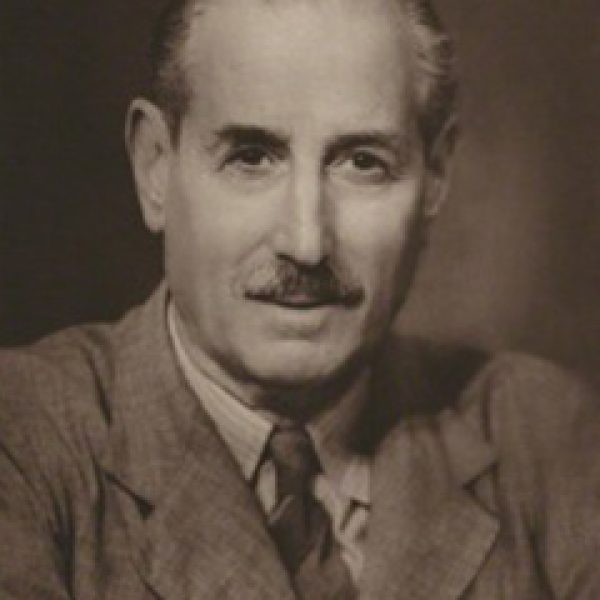

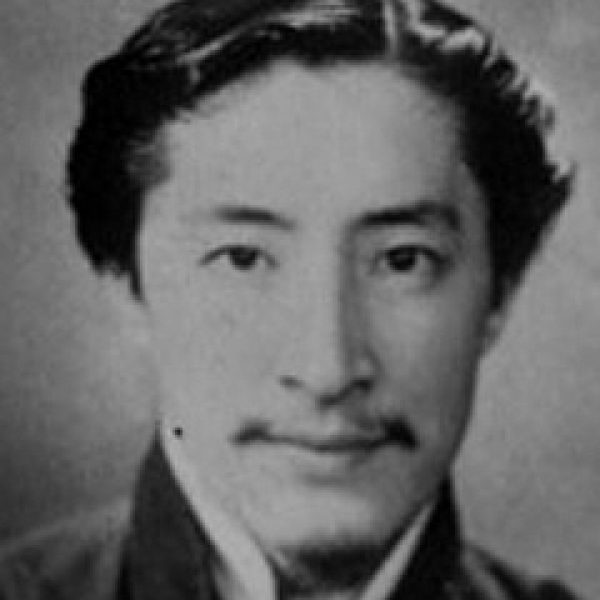
Starting at the Cathay Hotel, an Art Deco masterpiece that still stands on the Bund, the book tells the true-life story of three characters who will live life to the fullest in Shanghai on the eve of the Second World War. To the dismay of Sir Victor Sassoon, the Sephardic Jewish multimillionaire who built a real-estate empire on the mud of Shanghai, the globetrotting flapper Emily “Mickey” Hahn will be drawn into the maelstrom of the Chinese city by Zau Sinmay, a Chinese decadent poet who introduces her to opium and all the pleasures of the Orient…

